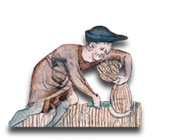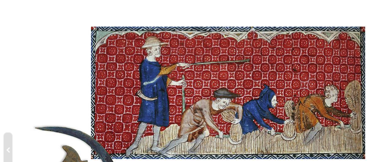Sign up for FlowVella
Sign up with FacebookAlready have an account? Sign in now
By registering you are agreeing to our
Terms of Service
Loading Flow

Most peasants on a manor were people bound to the land called serfs. Serfs were not slaves, but they were not free. They could not leave the manor, and, if the manor got a new lord, the lord would also get the vassals. Peasants and their lords were tied together by mutual rights and obligations. Peasants were required to farm several day's a week on the lord's land and to repair his roads, bridges, and fences. Peasants had to ask their lord's permission to marry, and, whenever they used a lord's mill for their grain, peasants paid the lord a fee. In return for their labor and payments, peasants could farm some land for themselves and receive the lord's protection during warfare or raids. In theory, they were guaranteed food, housing, and land. Most peasants also had never traveled more than a few miles from their village. They had no schooling and no knowledge of a larger outside world. The peasants and serfs made up about 90% of the population.

Peasants and serfs
